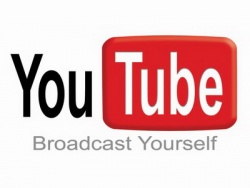Difference between revisions of "YouTube"
(→Copyright Concerns) |
|||
| Line 17: | Line 17: | ||
== Copyright Concerns == | == Copyright Concerns == | ||
| − | YouTube faces tremendous copyright issues mainly because it does not monitor the content of any videos.YouTube does not allow users to upload pornography or other videos that are detrimental in nature. Also copyrighted materials are not allowed to be uploaded. This, however, has not been a deterrent to thousands of people. There are millions of videos on YouTube that are illegal, in terms of copyrighted material, but YouTube does not take them down on their own. In fact YouTube makes little to no effort to enforce the policies that it lists unless a user or company has brought an issue to their attention. This creates a problem for many musical artists who rely on music purchases for their well being. Because YouTube does not actively seek out and remove illegal material this job is left in the hands of those concerned. Some artists may see the upload of their music as a benefit. By their music being uploaded their listeners are showing that they want other people to listen. An artist may feel that their music being shown to more people is what music is all about. To musicians that do not care about monetary things, the fact that their music is being listened to in itself is a great thing. Movies also have to deal with copyright concerns because they can be uploaded in pieces and go relatively unseen by the movie producers. | + | YouTube faces tremendous copyright issues mainly because it does not monitor the content of any videos.YouTube does not allow users to upload pornography or other videos that are detrimental in nature. Also copyrighted materials are not allowed to be uploaded. This, however, has not been a deterrent to thousands of people. There are millions of videos on YouTube that are illegal, in terms of copyrighted material, but YouTube does not take them down on their own. In fact YouTube makes little to no effort to enforce the policies that it lists unless a user or company has brought an issue to their attention. This creates a problem for many musical artists who rely on music purchases for their well being. Because YouTube does not actively seek out and remove illegal material this job is left in the hands of those concerned. Some artists may see the upload of their music as a benefit. By their music being uploaded their listeners are showing that they want other people to listen. An artist may feel that their music being shown to more people is what music is all about. To musicians that do not care about monetary things, the fact that their music is being listened to in itself is a great thing. |
| + | |||
| + | Movies also have to deal with copyright concerns because they can be uploaded in pieces and go relatively unseen by the movie producers. Over the past five years, there has been an ongoing lawsuit between YouTube and Viacom. Viacom claimed that YouTube did not remove unauthorized shows like "The Daily Show With Jon Stewart" and other copyrighted shows from the site. The court went back and forth, trying to decided if this was indeed a copyright infringement. On April 4, 2012 it was decided that it was a violation of copyright, but the two companies decided to arrange a deal in which YouTube will allow users to ren Viacom's Paramount Pictures movies<ref>topics.nytimes.com/top/news/business/companies/youtube/index.html</ref>. | ||
| + | |||
===Third-Party Claims=== | ===Third-Party Claims=== | ||
Revision as of 05:51, 4 December 2012
YouTube is the largest video-sharing website in the world. YouTube was founded in 2005 and quickly became an international phenomenon. It now has millions of videos and hundreds of millions of viewers per day. YouTube has become a source of education, but most of all fun.
Contents
History
YouTube was founded by Chad Hurley, Steve Chen, and Jawed Karim in 2005 after they had difficulty sharing videos with each other. All three of the founders were previously employees of PayPal, an online company that acts as its users' digital wallet. YouTube's first headquarters were located above a pizzeria in San Mateo, California. It started as an angel-funded enterprise from a makeshift office, however, in November 2005, Sequoia Capital invested an initial $3.5 million[1]. After being funded by Sequoia Capital, a beta came out and was quickly followed by a real version. During the summer of 2006, YouTube gained popularity and was one of the fastest growing sites on the Web, uploading more than 65,000 new videos and obtaining 100 million video views per day in July[2]. The site grew rapidly and was bought by Google in October, 2006 for $1.65 billion[3]. YouTube has gone on to make deals with movie producers as well as television stations in order to display their content on YouTube. Google+ has adopted YouTube as its video viewing mechanism.
iPhone App
In 2007, Apple released iOS 6 which for the time did not come with a YouTube application natively installed. At the time 25% of all YouTube views were on mobile devices. Apple had announced before the iOS release that YouTube would no longer be pre-installed, and within a month YouTube created an app of its own. Controversy began begin the technology giants, Apple and Google, because Google was given limited control of the native YouTube app because of its integration within the operating system. The most notable limitation was control of ads. Apple refused to allow YouTube to display ads before a video. YouTube is not the only disagreement between Google and Apple in recent months. Apple announced in July 2012 that it would no longer use Google Maps to power the iPhone Maps application.[4]
Funding
Advertisements
Similar to Facebook, YouTube is a free website that brings in revenue through advertising. Advertisers spend thousands of dollars so that their products will be featured on the top watched videos. YouTube enforces strict community and technical guidelines for all of its advertisements[5]. The site aims to be fair and consistent with its policies in order to benefit its users, advertisers, and partners. It reserves the right to reject or approve any ad from the site that is deemed inappropriate or intrusive. Refunds are not issued for promotions where the related ads or videos are disabled, suspended, or age-restricted due to policy violations[6], so the site profits even from unsuccessful advertisements. With thousands of advertisements on YouTube, more than enough money is provided to fund the site.
Copyright Concerns
YouTube faces tremendous copyright issues mainly because it does not monitor the content of any videos.YouTube does not allow users to upload pornography or other videos that are detrimental in nature. Also copyrighted materials are not allowed to be uploaded. This, however, has not been a deterrent to thousands of people. There are millions of videos on YouTube that are illegal, in terms of copyrighted material, but YouTube does not take them down on their own. In fact YouTube makes little to no effort to enforce the policies that it lists unless a user or company has brought an issue to their attention. This creates a problem for many musical artists who rely on music purchases for their well being. Because YouTube does not actively seek out and remove illegal material this job is left in the hands of those concerned. Some artists may see the upload of their music as a benefit. By their music being uploaded their listeners are showing that they want other people to listen. An artist may feel that their music being shown to more people is what music is all about. To musicians that do not care about monetary things, the fact that their music is being listened to in itself is a great thing.
Movies also have to deal with copyright concerns because they can be uploaded in pieces and go relatively unseen by the movie producers. Over the past five years, there has been an ongoing lawsuit between YouTube and Viacom. Viacom claimed that YouTube did not remove unauthorized shows like "The Daily Show With Jon Stewart" and other copyrighted shows from the site. The court went back and forth, trying to decided if this was indeed a copyright infringement. On April 4, 2012 it was decided that it was a violation of copyright, but the two companies decided to arrange a deal in which YouTube will allow users to ren Viacom's Paramount Pictures movies[7].
Third-Party Claims
Youtube has incorporated a set of content-identifying tools which third-party companies who have with a commercial partnership with Youtube may use in order to search the website for videos matching their content. This is how in many cases unauthorized uploads of music videos or clips from television or movies by individual youtube users are found and removed.
Ethical Issues
The anonymous nature of YouTube provides another context for bad behavior. In the incident of Dusty the Cat anonymity was destroyed. In cases where an individual has their account blocked for uploading illegal videos they can simply make a new account and continue. Punishing maladaptive behavior is done by removing video and/or blocking users, but this is hardly a deterrent. A user who has uploaded a video that has been removed could change a small aspect of the movie and repost it, perhaps using another account and then the video would again be on YouTube.
Further Reading
External Links
References
- ↑ Woolley, Scott · (2006-03-13) · Raw and Random · Forbes.com · Forbes · 2006-07-28
- ↑ lastname, firstname · (July 16, 2006) · YouTube serves up 100 million videos a day online · USA Today · November 29, 2008
- ↑ http://www.crunchbase.com/company/youtube
- ↑ YouTube releases new iPhone app
- ↑ http://www.youtube.com/t/advertising_policies
- ↑ http://www.youtube.com/t/advertising_policies
- ↑ topics.nytimes.com/top/news/business/companies/youtube/index.html

